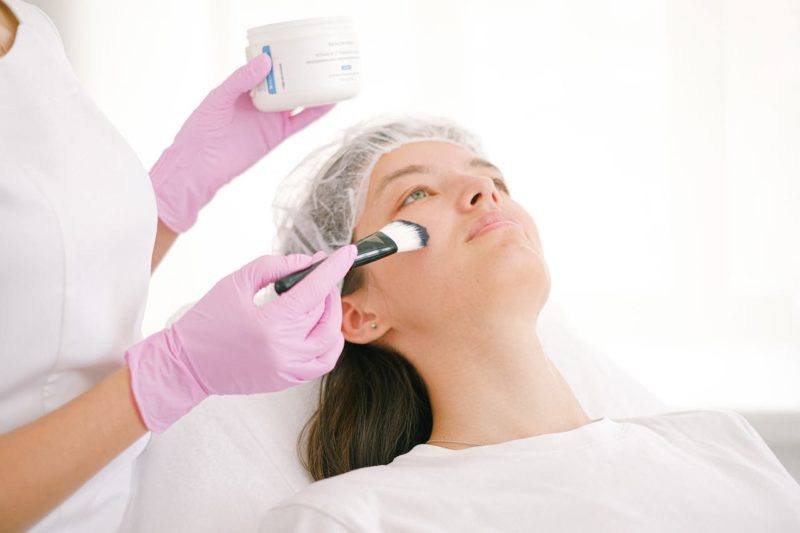How State Licensing Works for Aspiring Cosmetologists

State licensing is an essential gateway for aspiring cosmetologists. Licensing standards are designed to ensure that professionals in the beauty industry have acquired the skills, knowledge, and public safety awareness necessary to provide quality services to clients. By understanding how the state licensing process works, future cosmetologists can better prepare for their careers and comply with all legal and professional requirements. The steps may appear complex initially, but the process offers a clear structure to protect cosmetologists and the public.
What State Licensing Means for Cosmetologists
State licensure officially recognizes that a cosmetologist meets all the requirements to practice within their state. Each state has its cosmetology board responsible for setting standards, reviewing applications, and overseeing examinations. Being licensed means that the cosmetologist has fulfilled the educational and training standards mandated by the state, has passed all relevant exams, and is qualified to perform various professional services safely.
The licensing process is not just about compliance, but is also a significant marker of professional credibility. Since public safety is a central concern in personal care services, licensing ensures that all practitioners understand proper hygiene, sanitation, and infection control procedures. For those unfamiliar with what is cosmetology, it is the comprehensive art and science of personal care, covering hair, skin, nails, and sometimes makeup services, which makes licensing vital in guaranteeing industry standards.
Educational Requirements and Training Hours
Before applying for a license, aspiring cosmetologists must complete a specified number of educational hours in a state-approved cosmetology program. The number of clock hours required for licensing can vary significantly by state, generally falling between 1,000 and 2,100 hours. During this time, students learn fundamental topics, including sanitation, hair cutting and coloring, skin care, nail services, and client safety.
Classroom instruction is supported by hands-on practice in clinic-like settings where students gain real-world experience under supervision. Mastery of the technical and theoretical aspects of cosmetology is regularly measured through tests and practical assessments. Some programs offer flexible schedules, allowing students to attend full-time, part-time, evening, and on weekends. Program completion is a prerequisite for state licensing exams.
State-Approved Cosmetology Programs
Only programs reviewed and approved by the state’s cosmetology board are eligible to prepare students for licensure. State approval standards cover curriculum, facilities, instructor qualifications, and compliance with health regulations. Students should verify that their chosen school is on the approved provider list to avoid issues later in the licensing process.
Approved programs instruct all the required disciplines determined by the specific state board. These may include sections on anatomy, chemistry, product knowledge, business ethics, and up-to-date health, sanitation, and safety regulations. Some states also require students to complete a minimum number of practical applications or services on actual clients as part of their training.
The Examination Process
Graduates move on to the licensing examination phase after completing a state-approved education program and the required hours. Most states use a combination of written (theory) and hands-on (practical) exams to assess a candidate’s readiness. The written portion generally covers theoretical knowledge, such as state laws, safety protocols, and the science behind various cosmetology services.
The practical examination requires candidates to demonstrate their skills in real time, performing tasks while being evaluated by licensed examiners. These tasks may include hair cutting, styling, chemical treatments, nail care, and foundational skin services. Satisfactory performance is needed in both parts (and sometimes a verbal or oral component) to pass and receive a license from the state board.
License Renewal and Continuing Education
Most states require cosmetologists to renew their licenses periodically, usually every one or two years. Renewal application is straightforward and can increasingly be completed online. In addition to renewal fees, many states mandate continuing education hours to ensure licensed professionals update their knowledge as the industry advances with new techniques and health protocols.
Continuing education may include classes on advanced haircutting, new coloring technologies, upgraded sanitation methods, or specialized certifications. Cosmetologists are committed to maintaining high standards and adapting to industry developments by fulfilling ongoing education requirements. Failure to renew a license or complete continuing education can result in expiration, practice suspension, penalties, strict deadlines, and course completion is essential.
Transferring a Cosmetology License Between States
License transfer policies are essential for licensed cosmetologists relocating to a new state. This process is commonly known as endorsement, reciprocity, or transfer. Each state sets its guidelines for accepting out-of-state credentials. Some states have agreements that make transferring straightforward, while others may require additional documentation or supplemental exams. A cosmetologist must submit proof of education, licensure status, and work experience. In some cases, additional coursework or an exam may be necessary if the new state requires more training hours than previously completed.
It is crucial to read the requirements carefully and communicate with the state’s licensing board where one intends to practice. Gathering transcripts, exam scores, and relevant records ahead of time can streamline the transfer process and reduce time away from work.
Conclusion
State licensing forms the foundation of a safe and professional cosmetology industry, enabling aspiring cosmetologists to demonstrate their skills and commitment to client safety. By following precise requirements—completing approved education, fulfilling clock hours, passing examinations, and maintaining credentials—cosmetologists establish themselves as trusted experts in their field. Understanding each stage of the licensing process empowers future professionals to take confident steps toward a rewarding career. Vigilance with renewal and ongoing learning ensures long-term success, compliance, and professional growth in every licensed cosmetology practice.
Would you like to receive similar articles by email?





